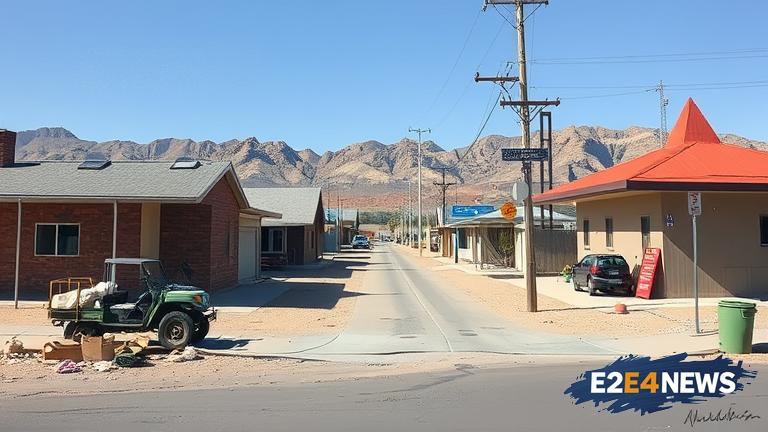Homelessness and squatting have become significant concerns in Southern Nevada, with many individuals and families struggling to find stable housing. In response, elected officials are implementing various initiatives to provide support and resources to those in need. The city of Las Vegas has established a homelessness outreach team, which works to connect individuals with local services and organizations that can provide assistance. Additionally, the city has implemented a program to provide temporary housing for those in need, with the goal of helping them get back on their feet. The state of Nevada has also allocated funds to support homelessness initiatives, including the creation of affordable housing units and the provision of mental health and substance abuse services. Furthermore, local law enforcement agencies are working to address the issue of squatting, which has become a significant problem in the region. Squatting, which involves individuals occupying vacant or abandoned properties without permission, can lead to safety hazards and property damage. To combat this issue, law enforcement agencies are increasing patrols in areas known to have high levels of squatting and are working with property owners to identify and address vacant properties. Elected officials are also exploring long-term solutions to address the root causes of homelessness, including poverty, lack of affordable housing, and mental illness. One approach being considered is the creation of a regional homelessness plan, which would bring together local governments, service providers, and community organizations to coordinate efforts and resources. Another approach is the development of affordable housing units, which would provide stable and affordable housing options for low-income individuals and families. The city of Henderson has already implemented a program to provide affordable housing, and other cities in the region are exploring similar initiatives. Despite these efforts, homelessness and squatting remain significant challenges in Southern Nevada, and elected officials acknowledge that more work needs to be done to address these issues. The community is also being encouraged to get involved, with many organizations and volunteer groups working to provide support and services to those in need. Overall, the response to homelessness and squatting in Southern Nevada is a complex and multifaceted one, requiring the coordination and cooperation of local governments, service providers, and community organizations. By working together, officials hope to make a positive impact on the lives of those affected by homelessness and squatting, and to create a more stable and supportive community for all.
